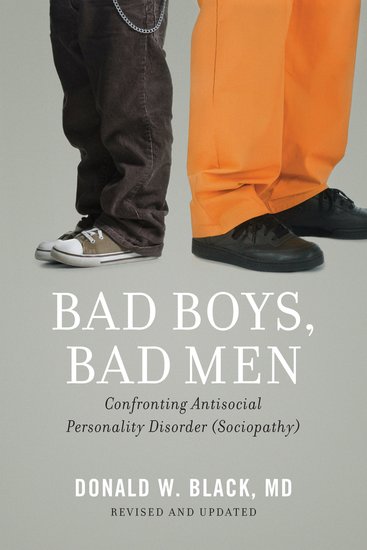By Donald W. Black
For many years I have pondered the mental state and motivations of mass shooters. The tragic events in Newtown, CT this past week have brought this to the fore. Mass shootings have become everyday occurrences in the United States, and for that reason tend not to attract much attention unless the circumstances are especially heinous, such as this instance in which the victims were young children. We are all left wondering what can be done. While the attention span of the general public and the media is usually a matter of nanoseconds, this mass shooting seems different, and I hope will lead to positive policy changes. This tragedy presents an opportunity for our leaders to step up to the plate and lead and, one hopes, implement rational gun control legislation most of us agree is necessary.
But back to the shooters. As a psychiatrist with an intense interest in bad behavior, I expect that discussions will center on mental health issues which many believe motivate the shooters. I am intensely interested in these “issues” because, to me, the main issue that keeps coming up is that of psychiatric diagnosis. Everyone seems interested in the possibility of a psychiatric diagnosis, because it suggests that we might “understand” the shooter, and this may lead to better identification of future shooters, and both improved treatment and prevention.
But will the presence of a psychiatric diagnosis improve our understanding? Probably not, because — at least in the cases we know about — the apparent psychiatric diagnosis runs the gamut. Some shooters appear to have schizophrenia, others a depressive disorder, and still others a personality disorder, as has been alleged in the case of Adam Lanza. While we seem able to understand that a “crazy” person out of touch with reality might carry out an otherwise senseless act, the thought that someone who is not psychotic carrying out such an act is very unsettling. How could a person who is not psychotic behave this way? For example, depressed persons are by and large not psychotic, yet some will — in the context of being hopeless and suicidal — want to take others with them: spouses, children, etc. More typically, while planning to harm themselves, most depressed persons have no desire to hurt anyone else.
What about the non-psychotic people with a personality disorder? The Diagnostic and Statistical Manual of Mental Disorders — a compendium of psychiatry’s officially recognized disorders (about to come out in its 5th edition) — lists ten personality disorders; the most relevant to our discussion is antisocial personality disorder. This disorder is quite common (up to 4.5% of the population) and causes all manner of problems because the antisocial person always seems to be in trouble with the law, their spouses and families, or their employers.
The term antisocial is almost always misunderstood and is often construed to mean ”shy” or “inhibited,” yet in a psychiatric sense the term suggests rebellion against society. My profession has done a poor job in educating the general public about the disorder and for that reason it remains under the radar screen. (An older term that seems more entrenched is sociopathy.) In the DSM, the diagnosis rests on the person having three or more of seven symptoms (such as deceitfulness, impulsivity, irritability and aggressiveness, etc). Perhaps the most important is “lack of remorse,” which occurs in about half of those diagnosed antisocial. This is what allows the antisocial person to hurt, to mistreat, or even to kill others. These are the “psychopaths” we read about and fear. (Psychopathy is at the extreme end of the antisocial spectrum of behavior.) Few antisocials are killers, but many of today’s mass shooters would fit the description of antisocial personality disorder. I don’t know if Adam Lanza would, but as we peel back the layers of his personal history, we might find that he does.
We don’t know what causes antisocial personality disorder, but like many disorders it probably results from a combination of genetic and environmental factors. I have argued for many years that the federal government needs to direct more funds to investigating its causes and developing effective treatments. Despite its high prevalence and the fact that it contributes to so much of society’s ills, the government has shown little interest in funding research on the disorder. The National Institutes of Health RePORTER website lists only two projects in which the term “antisocial” appears in the title and only five in which the terms “psychopathy” or “psychopathy” are used. Considering that NIH funds literally thousands of projects, this can only be considered hopelessly inadequate. Overcoming this resistance to research on antisocial personality disorder and related conditions must be a priority.
We need wide-ranging projects to explore the origins of antisocial behavior and search for methods to change its course. Geneticists should investigate the mechanisms underlying antisocial behavior, locating genes that might predispose individuals to antisocial behavior and determining how these genes function. Neuroscientists should pinpoint brain regions or networks linked to antisocial behavior and identify biochemical and physiological pathways that influence its expression. A range of treatments — both drugs and therapy — need to be developed, tested, and refined.
Will these steps help us understand the conundrum of the mass shooter? Will they allow us to treat antisocial persons and prevent youth with antisocial tendencies from developing a full-blown disorder? We can certainly hope.
Donald W. Black, MD is a professor of psychiatry at the University of Iowa Roy J. and Lucille A. Carver College of Medicine in Iowa City. He is the author of Bad Boys, Bad Men: Confronting Antisocial Personality Disorder (Sociopathy), Revised and Updated (Oxford University Press, 2013).
Subscribe to the OUPblog via email or RSS.
Subscribe to only psychology articles on the OUPblog via email or RSS.



[…] and tagged antisocial behavior Child development prevention on November 28, 2018 by ssmith https://blog.oup.com/2012/12/identifying-and-preventing-antisocial-behavior/ Title: Identifying and preventing antisocial behavior Description: In this blog, a psychiatrist […]